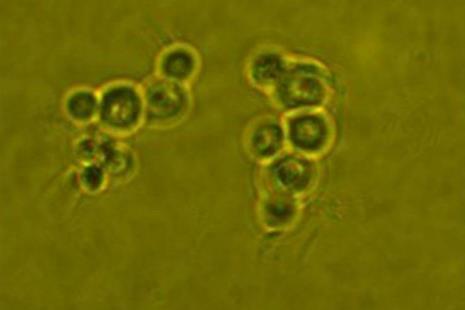The demand for industrial enzymes is continually rising, driven by the growing need to shift towards more sustainable industrial processes.

A new study outlines a novel approach in enzyme production, harnessing the untapped potential of cyanobacterial biomass within the P. pastoris platform.
Group leader, Dr. Doris Schieder, highlighted the nature of the study, stating: “Our work reveals the potential of cyanobacterial biorefineries to support enzyme production.”
Potent enzyme-producing strains
An extensive multi-field approach saw the team characterize and expand a combinatorial library, streamlining P. pastoris engineering for enhanced efficiency. Rigorous screening of these libraries yielded potent enzyme-producing strains enabling the development of a fed-batch strategy for efficient AppA E. coli phytase expression.
A key element is the successful utilization of Nostoc sp. De1 biomass hydrolysate as substrate for fermentation, presenting a viable and sustainable alternative to conventional feedstock.
Korbinian Sinzinger underscored the importance of this research, stating: “Our findings demonstrate that the extended P. pastoris toolkit not only generates high-performing producer strains but also offers a greener pathway for enzyme expression, addressing the critical need for sustainable biobased production.”







No comments yet